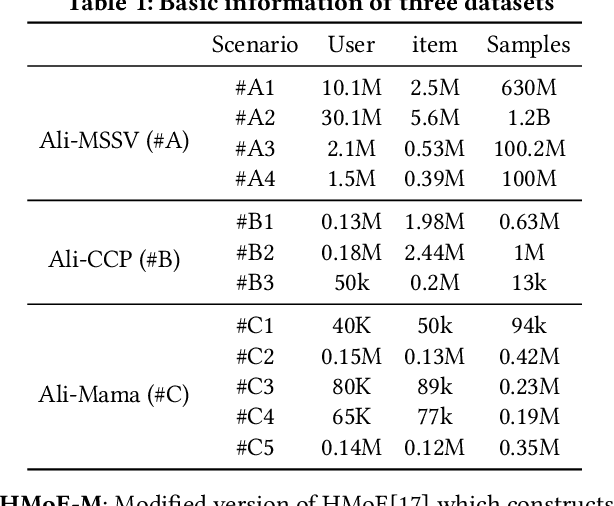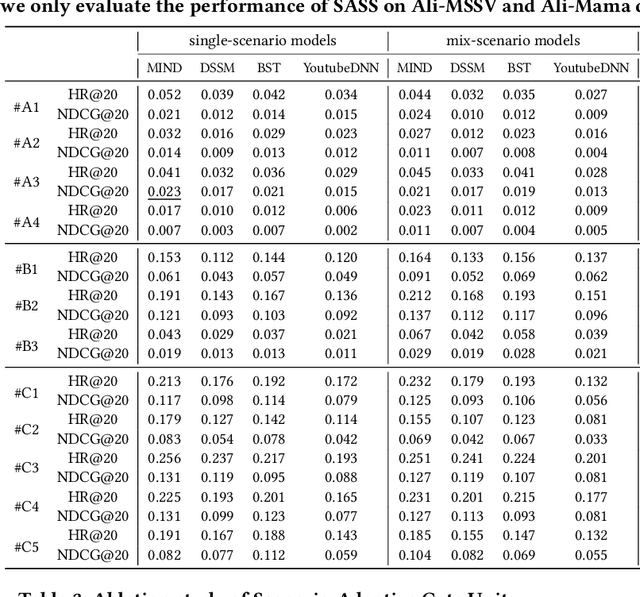Scenario-Adaptive and Self-Supervised Model for Multi-Scenario Personalized Recommendation
Paper and Code
Aug 24, 2022



Multi-scenario recommendation is dedicated to retrieve relevant items for users in multiple scenarios, which is ubiquitous in industrial recommendation systems. These scenarios enjoy portions of overlaps in users and items, while the distribution of different scenarios is different. The key point of multi-scenario modeling is to efficiently maximize the use of whole-scenario information and granularly generate adaptive representations both for users and items among multiple scenarios. we summarize three practical challenges which are not well solved for multi-scenario modeling: (1) Lacking of fine-grained and decoupled information transfer controls among multiple scenarios. (2) Insufficient exploitation of entire space samples. (3) Item's multi-scenario representation disentanglement problem. In this paper, we propose a Scenario-Adaptive and Self-Supervised (SASS) model to solve the three challenges mentioned above. Specifically, we design a Multi-Layer Scenario Adaptive Transfer (ML-SAT) module with scenario-adaptive gate units to select and fuse effective transfer information from whole scenario to individual scenario in a quite fine-grained and decoupled way. To sufficiently exploit the power of entire space samples, a two-stage training process including pre-training and fine-tune is introduced. The pre-training stage is based on a scenario-supervised contrastive learning task with the training samples drawn from labeled and unlabeled data spaces. The model is created symmetrically both in user side and item side, so that we can get distinguishing representations of items in different scenarios. Extensive experimental results on public and industrial datasets demonstrate the superiority of the SASS model over state-of-the-art methods. This model also achieves more than 8.0% improvement on Average Watching Time Per User in online A/B tests.
 Add to Chrome
Add to Chrome Add to Firefox
Add to Firefox Add to Edge
Add to Edge